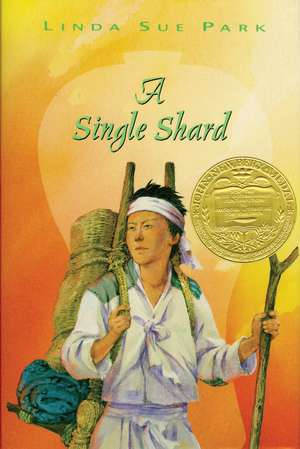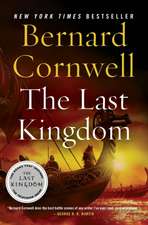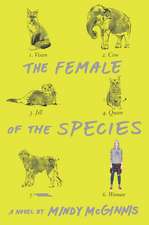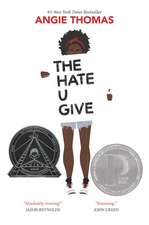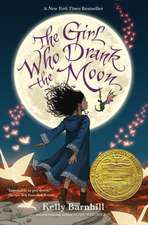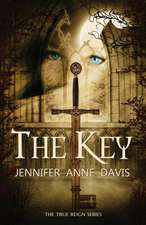A Single Shard: A Newbery Award Winner
Autor Linda Sue Parken Limba Engleză Hardback – 22 apr 2001 – vârsta până la 12 ani
Vezi toate premiile Carte premiată
Tree-ear is an orphan boy in a 12th-century Korean village renowned for its ceramics. When he accidentally breaks a delicate piece of pottery, he volunteers to work to pay for the damage. Putting aside his own dreams, Tree-ear resolves to serve the master potter by embarking on a difficult and dangerous journey, little knowing that it will change his life forever.
"Despite the odds against him, Tree-ear becomes courageous, brave and selfless, a hero as enduring as the porcelain Park so lovingly describes." (New York Times)
“Intrigues, danger, and a strong focus on doing what is right turn a simple story into a compelling read. A timeless jewel.” (Kirkus starred review)
*A broken piece of pottery sets events in motion as an orphan struggles to pay off his debt to a master potter. This finely crafted novel brings 12th-century Korea and these indelible characters to life." (School Library Journal starred review)
"Tree-ear's determination and bravery in pursuing his dream of becoming a potter takes readers on a literary journey that demonstrates how courage, honor and perseverance can overcome great odds and bring great happiness. Park effectively conveys 12th century Korea in this masterful piece of historical fiction." (Kathleen Odean, chair of the Newbery Award Selection Committee)
| Toate formatele și edițiile | Preț | Express |
|---|---|---|
| Paperback (2) | 44.53 lei 3-5 săpt. | +6.68 lei 6-10 zile |
| Oneworld Publications – 20 ian 2022 | 44.53 lei 3-5 săpt. | +6.68 lei 6-10 zile |
| HarperCollins Publishers – 9 ian 2011 | 57.51 lei 3-5 săpt. | |
| Hardback (1) | 103.48 lei 3-5 săpt. | |
| HarperCollins Publishers – 22 apr 2001 | 103.48 lei 3-5 săpt. |
Preț: 103.48 lei
Nou
19.80€ • 20.68$ • 16.35£
Carte disponibilă
Livrare economică 26 martie-09 aprilie
Specificații
ISBN-10: 0395978270
Pagini: 160
Dimensiuni: 140 x 210 x 18 mm
Greutate: 0.3 kg
Editura: HarperCollins Publishers
Colecția Clarion Books
Locul publicării:United States
Recenzii
"Intrigues, danger and the same strong focus on doing what is right turn a simple story into a compelling read. Tree-ear's story conveys a time and place far away and long ago, but with a simplicity and immediacy that is both graceful and unpretentious. A timeless jewel." — Kirkus Reviews (starred review)
"Like Park's Seesaw Girl and The Kite Fighters, this book not only gives readers insight an unfamiliar time and place, but it is also a great story. A broken piece of pottery sets events in motion as an orphan struggles to pay off his debt to a master potter. This finely crafted novel brings 12th-century Korea and these indelible characters to life."(A Best Book of the Year) — School Library Journal (starred review)
"This quiet, but involving story draws readers into a very different time and place. Though the society has its own conventions, the hearts and minds and stomachs of the characters are not so far removed from those of people today. Readers will feel the hunger and cold that Tree-ear experiences, as well as his shame, fear, gratitude, and love. A well-crafted novel with an unusual setting. " — Booklist (starred review)
"Park's story is alive with fascinating information about life and art in ancient Korea." — The Horn Book
Notă biografică
Descriere
In this Newbery Medal-winning book set in 12th century Korea, Tree-ear, a 13-year-old orphan, lives under a bridge in Ch’ulp’o, a potters' village famed for delicate celadon ware. He has become fascinated with the potter’s craft; he wants nothing more than to watch master potter Min at work, and he dreams of making a pot of his own someday. When Min takes Tree-ear on as his helper, Tree-ear is elated — until he finds obstacles in his path: the backbreaking labor of digging and hauling clay, Min’s irascible temper, and his own ignorance. But Tree-ear is determined to prove himself — even if it means taking a long, solitary journey on foot to present Min’s work in the hope of a royal commission . . . even if it means arriving at the royal court with nothing to show but a single celadon shard.
Extras
"Eh, Tree-ear! Have you hungered well today?" Crane-man called out as Tree-ear drew near the bridge.
The well-fed of the village greeted each other politely by saying, "Have you eaten well today?" Tree-ear and his friend turned the greeting inside out for their own little joke.
Tree-ear squeezed the bulging pouch that he wore at his waist. He had meant to hold back the good news, but the excitement spilled out of him. "Crane-man! A good thing that you greeted me so just now, for later today we will have to use the proper words!" He held the bag high. Tree-ear was delighted when Crane-man’s eyes widened in surprise. He knew that Crane-man would guess at once—only one thing could give a bag that kind of smooth fullness. Not carrot-tops or chicken bones, which protruded in odd lumps. No, the bag was filled with rice. Crane-man raised his walking crutch in a salute. "Come, my young friend! Tell me how you came by such a fortune—a tale worth hearing, no doubt!"
Tree-ear had been trotting along the road on his early-morning perusal of the village rubbish heaps. Ahead of him a man carried a heavy load on a jiggeh, an open-framed backpack made of branches. On the jiggeh was a large woven-straw container, the kind commonly used to carry rice.
Tree-ear knew that the rice must be from last year’s crop; in the fields surrounding the village this season’s rice had only just begun to grow. It would be many months before the rice was harvested and the poor allowed to glean the fallen grain from the bare fields. Only then would they taste the pure flavor of rice and feel its solid goodness in their bellies. Just looking at the straw box made water rush into Tree- ear’s mouth.
The man had paused in the road and hoisted the wooden jiggeh higher on his back, shifting the cumbersome weight. As Tree-ear stared, rice began to trickle out of a hole in the straw box. The trickle thickened and became a stream. Oblivious, the man continued on his way.
For a few short moments Tree-ear’s thoughts wrestled with one another. Tell him—quickly! Before he loses too much rice! No! Don’t say anything—you will be able to pick up the fallen rice after he rounds the bend . . .
Tree-ear made his decision. He waited until the man had reached the bend in the road, then ran to catch him.
"Honorable sir," Tree-ear said, panting and bowing. "As I walked behind you, I noticed that you are marking your path with rice!" The farmer turned and saw the trail of rice. A well-built man with a broad suntanned face, he pushed his straw hat back, scratched his head, and laughed ruefully. "Impatience," said the farmer. "I should have had this container woven with a double wall. But it would have taken more time. Now I pay for not waiting a bit longer." He struggled out of the jiggeh’s straps and inspected the container. He prodded the straw to close the gap but to no avail, so he threw his arms up in mock despair. Tree-ear grinned. He liked the farmer’s easygoing nature. "Fetch me a few leaves, boy," said the farmer. Tree-ear complied, and the man stuffed them into the container as a temporary patch.
The farmer squatted to don the jiggeh. As he started walking, he called over his shoulder. "Good deserves good, urchin. The rice on the ground is yours if you can be troubled to gather it." "Many thanks, kind sir!" Tree-ear bowed, very pleased with himself. He had made a lucky guess, and his waist pouch would soon be filled with rice.
Tree-ear had learned from Crane-man’s example. Foraging in the woods and rubbish heaps, gathering fallen grain-heads in the autumn—these were honorable ways to garner a meal, requiring time and work. But stealing and begging, Crane-man said, made a man no better than a dog.
"Work gives a man dignity, stealing takes it away," he often said.
Following Crane-man’s advice was not always easy for Tree-ear. Today, for example. Was it stealing, to wait as Tree-ear had for more rice to fall before alerting the man that his rice bag was leaking? Did a good deed balance a bad one? Tree-ear often pondered these kinds of questions, alone or in discussion with Crane-man.
"Such questions serve in two ways," Crane-man had explained. "They keep a man’s mind sharp—and his thoughts off his empty stomach." Now, as always, he seemed to know Tree-ear’s thoughts without hearing them spoken. "Tell me about this farmer," he said. "What kind of man was he?" Tree-ear considered the question for several moments, stirring his memory. At last, he answered, "One who lacks patience—he said it himself. He had not wanted to wait for a sturdier container to be built. And he could not bee bothered to pick up the fallen rice." Tree- ear paused. "But he laughed easily, even at himself." "If he were here now, and heard you tell of waiting a little longer before speaking, what do you think he would say or do?" "He would laugh," Tree-ear said, surprising himself with the speed of his response. Then, more slowly, "I think . . . he would not have minded." Crane-man nodded, satisfied. And Tree-ear thought of something his friend often said: Scholars read the great words of the world. But you and I must learn to read the world itself.
Tree-ear was so called after the mushroom that grew in wrinkled half- circles on dead or fallen tree trunks, emerging from the rotten wood without benefit of parent seed. A good name for an orphan, Crane-man said. If ever Tree-ear had had another name, he no longer remembered it, nor the family that might have named him so.
Tree-ear shared the space under the bridge with Crane-man—or rather, Crane-man shared it with him. After all, Crane-man had been there first, and would not be leaving anytime soon. The shriveled and twisted calf and foot he had been born with made sure of that.
Tree-ear knew the story of his friend’s name. "When they saw my leg at birth, it was thought I would not survive," Crane-man had said. "Then, as I went through life on one leg, it was said that I was like a crane. But besides standing on one leg, cranes are also a symbol of long life." True enough, Crane-man added. He had outlived all his family and, unable to work, had been forced to sell his possessions one by one, including, at last, the roof over his head. Thus it was that he had come to live under the bridge.
Once, a year or so earlier, Tree-ear had asked him how long he had lived there. Crane-man shook his head; he no longer remembered. But then he brightened and hobbled over to one side of the bridge, beckoning Tree-ear to join him.
"I do not remember how long I have been here," he said, "but I know how long you have." And he pointed upward, to the underside of the bridge. "I wonder that I have not shown you this before." On one of the slats was a series of deep scratches, as if made with a pointed stone. Tree-ear examined them, then shook his head at Crane- man. "So?" "One mark for each spring since you came here," Crane-man explained. "I kept count of your years, for I thought the time would come when you would like to know how old you are." Tree-ear looked again, this time with keen interest. There was a mark for each finger of both hands—ten marks in all. Crane-man answered before Tree-ear asked. "No, you have more than ten years," he said. "When you first came and I began making those marks, you were in perhaps your second year—already on two legs and able to talk." Tree-ear nodded. He knew the rest of the story already. Crane-man had learned but little from the man who had brought Tree-ear to the bridge. The man had been paid by a kindly monk in the city of Songdo to bring Tree-ear to the little seaside village of Ch’ulp’o. Tree-ear’s parents had died of fever, and the monk knew of an uncle in Ch’ulp’o. When the travelers arrived, the man discovered that the uncle no longer lived there, the house having been abandoned long before. He took Tree- ear to the temple on the mountainside, but the monks had been unable to take the boy in because fever raged there as well. The villagers told the man to take the child to the bridge, where Crane-man would care for him until the temple was free of sickness.
"And," Crane-man always said, "when a monk came to fetch you a few months later, you would not leave. You clung to my good leg like a monkey to a tree, not crying but not letting go, either! The monk went away. You stayed." When Tree-ear was younger, he had asked for the story often, as if hearing it over and over again might reveal something more—what his father’s trade had been, what his mother had looked like, where his uncle had gone—but there was never anything more. It no longer mattered. If there was more to having a home than Crane-man and the bridge, Tree-ear had neither knowledge nor need of it. Breakfast that morning was a feast—a bit of the rice boiled to a gruel in a castoff earthenware pot, served up in a bowl carved from a gourd. And Crane-man produced yet another surprise to add to the meal: two chicken leg-bones. No flesh remained on the arid bones, but the two friends cracked them open and worried away every scrap of marrow from inside.
Afterward, Tree-ear washed in the river and fetched a gourd of water for Crane-man, who never went into the river if he could help it; he hated getting his feet wet. Then Tree-ear set about tidying up the area under the bridge. He took care to keep the place neat, for he disliked having to clear a space to sleep at the tired end of the day.
Housekeeping complete, Tree-ear left his companion and set off back up the road. This time he did not zigzag between rubbish heaps but strode purposefully toward a small house set apart from the others at a curve in the road.
Tree-ear slowed as he neared the mud-and-wood structure. He tilted his head, listening, and grinned when the droning syllables of a song- chant reached his ears. The master potter Min was singing, which meant that it was a "throwing" day.
Min’s house backed onto the beginnings of the foothills and their brushy growth, which gave way to pine-wooded mountains beyond. Tree- ear swung wide of the house. Under the deep eaves at the back, Min kept his potter’s wheel. He was there now, his gray head bent over the wheel, chanting his wordless song.
Tree-ear made his way cautiously to his favorite spot, behind a paulownia tree whose low branches kept him hidden from view. He peeped through the leaves and caught his breath in delight. Min was just beginning a new pot.
Min threw a mass of clay the size of a cabbage onto the center of the wheel. He picked it up and threw it again, threw it several times. After one last throw he sat down and stared at the clay for a moment. Using his foot to spin the base of the wheel, he placed dampened hands on the sluggardly lump, and for the hundredth time Tree-ear watched the miracle.
In only a few moments the clay rose and fell, grew taller, then rounded down, until it curved into perfect symmetry. The spinning slowed. The chant, too, died out and became a mutter of words that Tree-ear could not hear.
Min sat up straight. He crossed his arms and leaned back a little, as if to see the vase from a distance. Turning the wheel slowly with his knee, he inspected the graceful shape for invisible faults. Then, "Pah!" He shook his head and in a single motion of disgust scooped up the clay and slapped it back onto the wheel, whereupon it collapsed into an oafish lump again, as if ashamed.
Tree-ear opened his mouth to let out his breath silently, only then realizing that he had been keeping it back. To his eyes the vase had been perfect, its width half its height, its curves like those of a flower petal. Why, he wondered, had Min found it unworthy? What had he seen that so displeased him?
Min never failed to reject his first attempt. Then he would repeat the whole process. This day Tree-ear was able to watch the clay rise and fall four times before Min was satisfied. Each of the four efforts had looked identical to Tree-ear, but something about the fourth pleased Min. He took a length of twine and slipped it deftly under the vase to release it from the wheel, then placed the vase carefully on a tray to dry.
As Tree-ear crept away, he counted the days on his fingers. He knew the potter’s routine well; it would be many days before another throwing day.
The village of Ch’ulp’o faced the sea, its back to the mountains and the river edging it like a neat seam. Its potters produced the delicate celadon ware that had achieved fame not only in Korea but as far away as the court of the Chinese emperor.
Ch’ulp’o had become an important village for ceramics by virtue of both its location and its soil. On the shore of the Western Sea, it had access both to the easiest sea route northward and to plentiful trade with China. And the clay from the village pits contained exactly the right amount of iron to produce the exquisite gray-green color of celadon so prized by collectors.
Tree-ear knew every potter in the village, but until recently he had known them only for their rubbish heaps. It was hard for him to believe that he had never taken the time to watch them at work before. In recent years the pottery from the village kilns had gained great favor among those wealthy enough to buy pieces as gifts for both the royal court and the Buddhist temples, and the potters had achieved new levels of prosperity. The pickings from their rubbish heaps had become richer in consequence, and for the first time Tree-ear was able to forget about his stomach for a few hours each day.
During those hours it was Min he chose to watch most closely. The other potters kept their wheels in small windowless shacks. But in the warm months Min preferred to work beneath the eaves behind his house, open to the breeze and the view of the mountains.
Working without walls meant that Min possessed great skill and the confidence to match it. Potters guarded their secrets jealously. A new shape for a teapot, a new inscribed design—these were things that the potters refused to reveal until a piece was ready to show to a buyer.
Min did not seem to care about such secrecy. It was as if he were saying, Go ahead, watch me. No matter—you will not be able to imitate my skill.
It was true, and it was also the main reason that Tree-ear loved watching Min. His work was the finest in the region, perhaps even in the whole country.
Premii
- Rebecca Caudill Young Readers Book Award Nominee, 2006
- Dorothy Canfield Fisher Children's Book Award Nominee, 2003
- Massachusetts Children's Book Award Nominee, 2003
- Sequoyah Book Awards Nominee, 2003
- Charlie May Simon Children's Book Award Nominee, 2003
- Newbery Medal Winner, 2002
- Young Reader's Choice Award Winner, 2004
